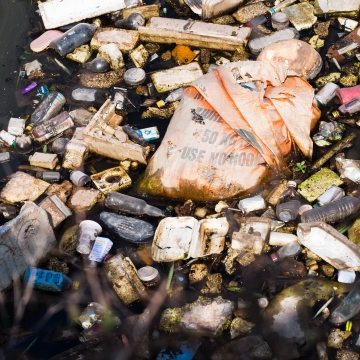Value of cleaner neighborhoods: Application of hedonic price model in low income context
Municipal solid waste management is a challenging issue in developing countries. An unclean neighborhood could have a significant negative impact on housing property values too as it may lead to numerous diseases in addition to diminished aesthetic value. This study examines the effects of municipal solid waste collection services at the neighborhood level on housing property values using the hedonic price model. We use a sub-sample of nationally representative household survey data from urban areas as well as primary data collected from one of the metropolitan cities in Nepal.
Government officials trained on Environmental Valuation
Over 40 trainees including representatives from Uganda line Ministries, Departments and Agencies including the Ministry of Lands and Housing, the Ministry of Water and Environment, the National Forest…
EfD-Mak Centre Uganda in collaboration with EfD-Tanzania hold a webinar on Harnessing the COVID -19 Recovery Programmes to Combat Climate Change in Uganda
The EfD Mak Centre Uganda in collaboration with EfD-Tanzania on 24th June, 2020 held a Webinar with a purpose of distilling lessons learned from the COVID-19 response and how these can be transposed…
Assessing service quality of e-waste recycling: A case study from Putrajaya, Malaysia
The quality of recycling services will reflect the effectiveness of recycling performancefurther improvements. Putrajaya residents were selected as a study site to evaluate the recycling services and assess the ability of the services provided. Data were collected using a stratified random sampling of the householdsusing the questionnaires that have been prior tested for reliability. Thecritical incident technique (CIT) was used to identify and analyse the satisfaction and dissatisfaction of recycling services.
Examining the Attributes of Electronic Waste Recycling Service: A Choice Modelling Approach
This paper estimates the economic valuation, discusses preferences for electronic waste (e-waste) recycling, and identifies the most preferred attributes in e-waste recycling. Stratified random sampling from the households in Putrajaya, Malaysia was utilised to obtain the primary data. It provides the readers with an intrinsic satisfaction when choosing a modelling analysis on the valuation of non-market goods using conditional logit simple model.
Solid waste management during Covid-19 pandemic: policy gaps and prospects for inclusive waste governance in Nigeria
Solid waste management (SWM) is a public health service whose importance is often understated. When the solid waste management challenge is exacerbated by a public health emergency such as the Covid-19 pandemic, its real significance as an essential service becomes more apparent. The outbreak and spread of the novel coronavirus (Covid-19) has led to dramatic transformations of every sector of the Nigerian society including SWM systems, where formal and informal actors co-exist often in an uneasy relationship.
Pagination
- Previous page
- Page 13
- Next page



